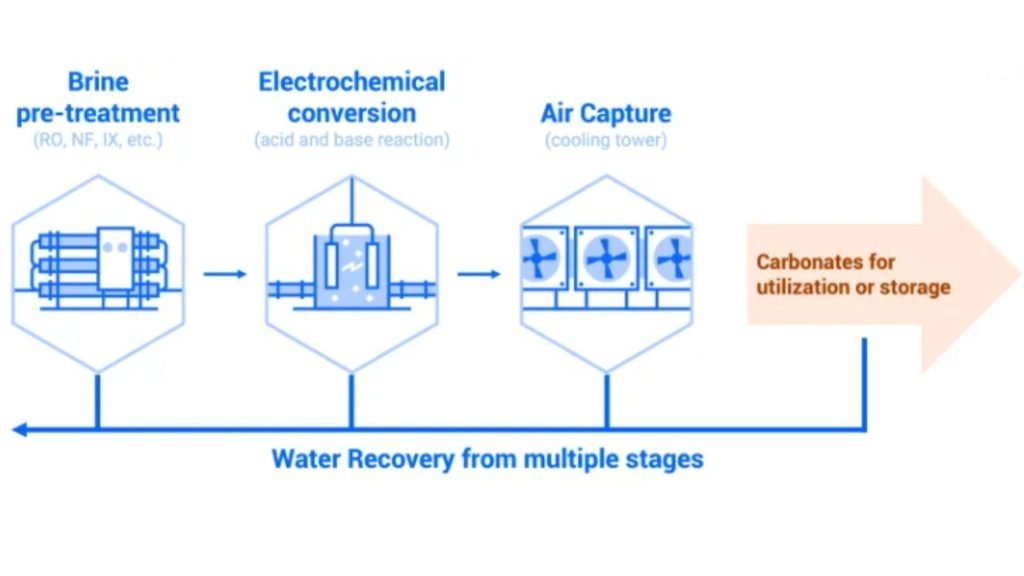A groundbreaking integrated facility is set to be constructed in the Daesan Industrial Complex in South Korea, promising not just a reduction in carbon emissions but a new source of fresh water as well.
This innovative plant will capture 50,000 tons of carbon dioxide annually while transforming seawater into freshwater, making it the first of its kind globally.
As nations worldwide strive towards carbon neutrality, there’s an increasing emphasis on innovative methods to capture and utilize carbon emissions.
Carbon capture technologies are typically deployed to reduce emissions before they enter the atmosphere, whereas direct air capture (DAC) technology focuses on extracting carbon dioxide that’s already in the atmosphere.
Interestingly, DAC processes can also produce fresh water as a byproduct.
The Daesan Industrial Complex, a major petrochemical production hub, contributes to 40% of South Korea’s petrochemical output.
However, recent droughts have highlighted severe water scarcity in the region, forcing reliance on external water sources.
Additionally, this industrial area emits up to 17 million tons of CO2 equivalent emissions yearly.
To address these pressing issues, Capture6, a company specializing in DAC technology, in collaboration with K-water, South Korea’s state-owned water utility company, plans to implement an integrated solution.

This involves a desalination plant at the industrial complex, where seawater will be converted into freshwater.
Capture6’s ‘Project Octopus’ will utilize saltwater from this facility to create a carbon removal solvent for DAC applications, effectively reducing carbon emissions while increasing water supply.
Ethan Cohen-Cole, co-founder and CEO of Capture6, expressed that this collaboration marks a significant advancement in creating a sustainable future for the region.
Not only does this approach provide an affordable method for carbon removal, but it also enhances freshwater yields, effectively tackling both environmental challenges.
A distinct environmental benefit of this project is its solution to the usual byproduct of desalination: concentrated brine.
This brine can harm marine ecosystems when disposed of in the ocean.
Capture6 aims to utilize this byproduct to produce green chemicals such as hydrochloric acid and calcium carbonate, essential for many industrial applications in South Korea.
Historically, these chemicals were produced using fossil fuels and imported into the country.
By producing them locally, using waste from another process, Capture6 supports a circular economy, reducing the environmental footprint of industrial activities.
Yun Seog Dae, CEO of K-water, further emphasized the organization’s commitment to global carbon neutrality efforts.
Through partnerships that develop innovative water and carbon capture technologies, South Korea is setting a precedent for sustainable industrial practices, paving the way for other nations to follow suit.
